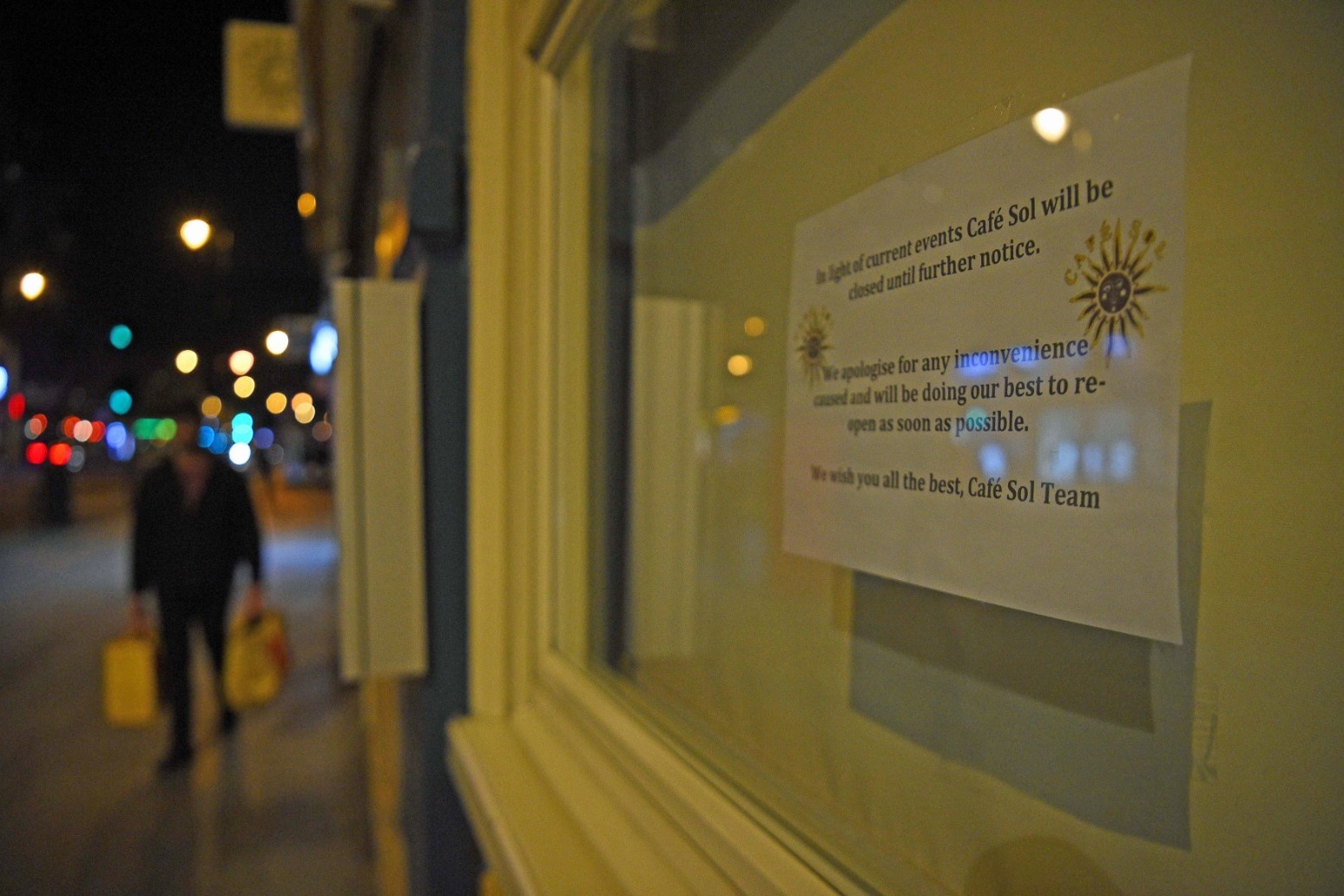
Pubs and restaurants stay shut as Coronavirus cases rise
Tens of thousands of pubs, bars, theatres and restaurants across the country are staying shut as the Government battles to slow the spread of the coronavirus. Boris Johnson ordered the dramatic closing down of the hospitality and entertainment sectors amid fears the NHS will be overwhelmed unless the Covid-19 outbreak is checked.
With scientists warning "social distancing" measures will have to stay in place for months to come, cinemas, nightclubs, gyms and betting shops were left wondering when they would be able to open their doors again.
Meanwhile economists have said the bill to taxpayers for the Government's unprecedented scheme to cover most of the wages of workers whose jobs are under threat from the outbreak could run to billions of pounds a month.
The Prime Minister announced the closure of pubs and restaurants at a Downing Street news conference on Friday following reports that many people were ignoring an earlier voluntary appeal to stay away.
While he acknowledged the ban went against the "freedom-loving instincts" of the British people, he said it was essential to achieve the 75% reduction in "unnecessary" social contacts required to reduce the rate of infection.
It was not clear exactly how the measures - backed by the devolved administrations in Scotland, Wales and Northern Ireland - will be enforced, although the Prime Minister indicated it could be done through the licensing system.
The move came as a further 39 people in England were confirmed to have died after testing positive for Covid-19, bringing the UK death toll to 177.
Mr Johnson said there was a "massive effort" underway to ensure the health service had the ventilators and intensive care beds to cope with the expected influx of new hospital cases.
Doctors in Italy, where the death toll has topped 4,000, warned the NHS to expect a "tsunami" of patients as the number of people needing specialist hospital treatment surged.
Number 10 said in a statement that Mr Johnson spoke with UN Secretary-General Antonio Guterres about the "need for a global response" to the pandemic, which Mr Guterres had earlier warned could cause a global recession "perhaps of record dimensions".
In a sign of the pressures that are building, it emerged a major London hospital temporarily declared a "critical incident" on Thursday due an upsurge in coronavirus admissions.
In a message to staff, Northwick Park Hospital in Harrow said it did not have enough space for patients requiring critical care.
The "critical incident" remained in place for around 24 hours and was stood down on Friday afternoon, a trust spokeswoman said, adding that critical care capacity for patients with coronavirus "is being organised on a cross-London basis".
Meanwhile the Institute of Fiscal Studies (IFS) warned the cost of Chancellor Rishi Sunak's coronavirus job retention scheme was simply "unknowable".
In a move previously unthinkable for a Conservative government, he said employers would be able to apply to HM Revenue and Customs to cover 80% of the wages of staff they keep on up to £2,500 a month.
IFS director Paul Johnson said if the support was claimed for 10% of employees it could cost the Government £10 billion over three months.
"The cost of the wage subsidy package is unknowable at present but will run into several billion pounds per month that it is in operation," he said.
"It is clearly a policy designed in haste and will require considerable speed and flexibility from HMRC to deliver. As a result there are obvious concerns about its design."
The plan was, however, broadly welcomed by trade unions and employers as offering a vital lifeline amid growing fears of a major recession.
Emma McClarkin, the chief executive of the British Beer and Pub Association, said: "We stand ready to play our part in the fight against Covid-19 and in the process protecting our communities and employees.
"As a sector employing nearly one million people, the Chancellor's support package announced today on staff wages will safeguard thousands of livelihoods and help closed pubs try to get through this difficult period.
"We stand ready to work with the Government to ensure that the support is accessible as fast as possible."
TUC general secretary Frances O'Grady said it was a "breakthrough" and praised the Chancellor for showing "real leadership".
"Employers can now be confident they'll be able to pay their wage bills. They must urgently reassure staff that their jobs are safe," she said.
However, shadow chancellor John McDonnell said Mr Sunak had not gone "far enough or fast enough".
"The Government must give people the economic security to stay at home by lifting the level of statutory sick pay, but it appears that the Government hasn't done that today," he said.
Published: by Radio NewsHub